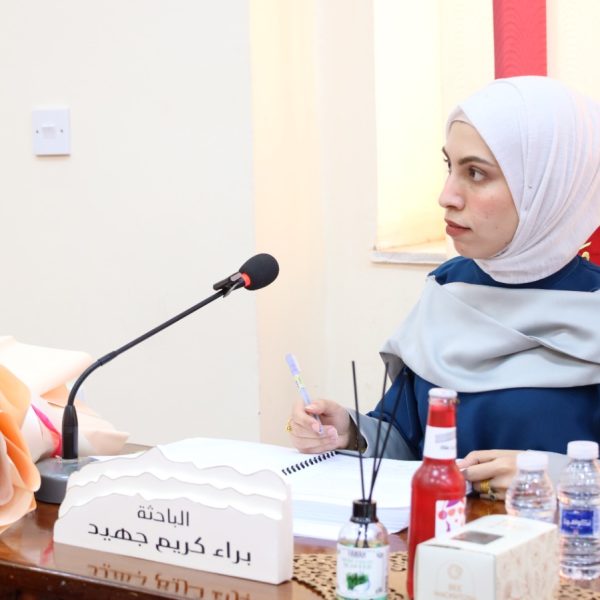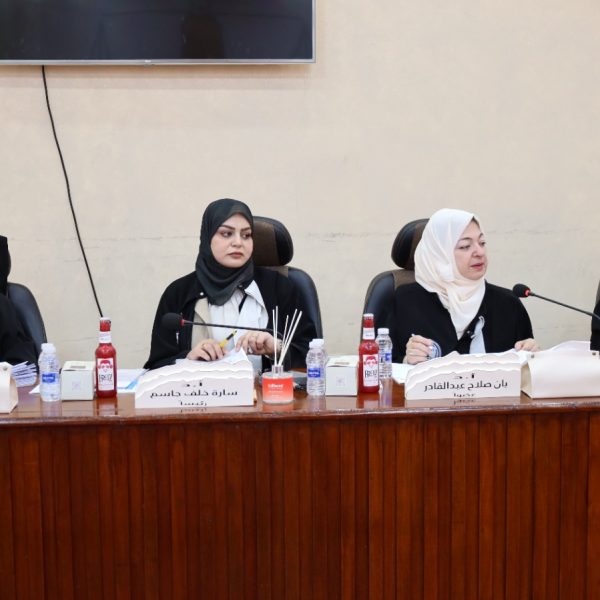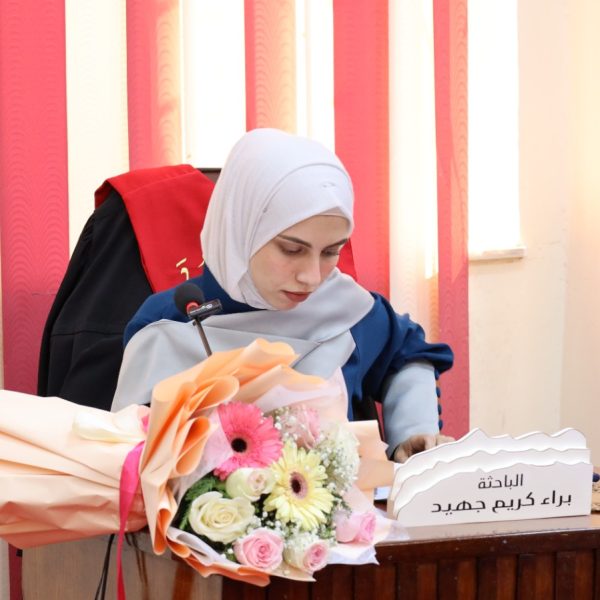The College of Law at the University of Baghdad discussed a master’s thesis entitled “The Legal Regulation of Governance of the Higher Education and Scientific Research Sector in Iraq – A Comparative Study” by student Baraa Kareem Jaheed, on Monday, September 22, 2025, at the Conference Hall.
The discussion committee consisted of the following professors:
-
Prof. Dr. Sara Khalaf Jassim (Chairman)
-
Prof. Dr. Ban Salah Abdul-Qader (Member)
-
Assoc. Prof. Dr. Sara Harith Abdul-Karim (Member)
-
Assoc. Prof. Dr. Taghreed Mohammed Qadouri (Member and Supervisor).
The thesis aimed to provide a legal study addressing a contemporary topic in legal scholarship by analyzing the current governing legislation in Iraq and comparative countries, and by examining the principles and standards established by international agreements and charters in this field. It also aimed to identify institutional shortcomings, particularly regarding weak autonomy, low government funding, and the absence of an integrated legislative framework, while clarifying the essential roles of the state and governing councils.
The study comprised three chapters: the first introduced the concept of governance in the higher education and scientific research sector; the second analyzed the legal framework for the role of the state and governing structures in institutional governance of higher education; and the third examined the integrative relationship between governance and quality assurance in higher education and scientific research.
The thesis concluded with several recommendations, most notably:
-
It emphasized the importance of benefiting from comparative experiences that have reached an advanced level of maturity and integration in higher education governance, as these provide robust models that can be emulated when developing legal frameworks for this sector.
-
It proposed that the Iraqi legislator adopt a differentiated model for classifying universities into three categories: research-oriented, traditional teaching, and applied professional, with the preparation of an institutional charter for each university defining its vision, priorities, and programs. This model would guide university admissions, resource planning, and academic program design according to national development needs and labor market requirements, linking government funding to academic performance, quality of education, and accreditation, thereby promoting good governance.




